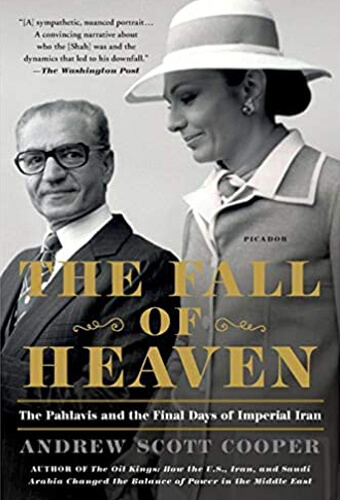1979 Iran Book Shelf
A gold medal wrestler, Reza's inspiring life celebrates honor, family and freedom. After he leads bloody battles in the 1979 Iranian Revolution and serves in the Air Force, Reza desires a fate beyond the suffocating suppression of Ayatollah Khomeini's Iran. On the last night of the 1982 Military World Wrestling Championships, he grips his gold medal, knowing American wrestlers wait minutes away to help him defect. He must choose between his own freedom and the possible revenge killing of his thirteen year-old brother locked in Ayatollah Khomeini's prison. Beyond the images of the blindfolded American hostages, the bearded cleric Ayatollah Khomeini and the controversial President Mahmoud Ahmandinejad, there are millions of men, women and children who desire to live with freedom and dignity. This story is their voice.
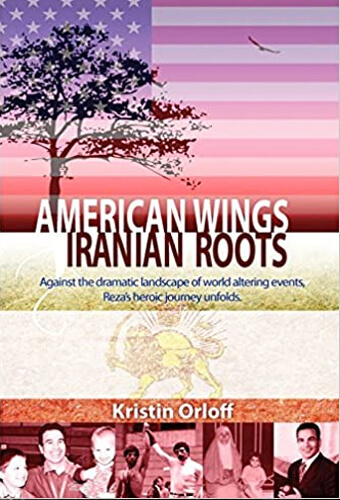

The 1979 revolution fundamentally altered Iran’s political landscape as a generation of inexperienced clerics who did not hail from the ranks of the upper class―and were not tainted by association with the old regime―came to power. The actions and intentions of these truculent new leaders and their lay allies caused major international concern.
This volume provides an unparalleled and timely look at political, social, economic, and ideological dynamics in contemporary Iran. Through chapters on social welfare and privatization, university education, the role and authority of the Supreme Leader, the rule of law, the evolving electoral system, and the intense debate over human rights within and outside the regime, the contributors offer a comprehensive overview of Iranian politics. Their case studies reveal a society whose multiple vectors of contestation, negotiation, and competition are creating possibilities for transformation that are yet to be realized but whose outcome will affect the Islamic Republic, the region, and relations with the United States.
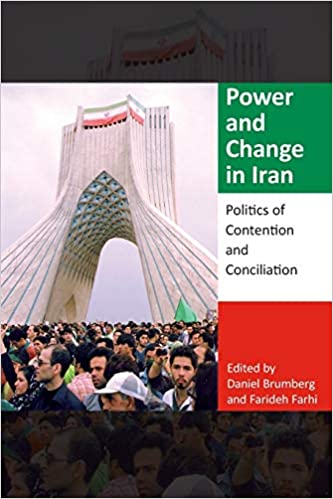

The popular narrative about women’s lives in Iran over the last forty years goes something like this: "During the Pahlavi Monarchy, women were on an upward trajectory. In a nation on the cusp of modernity, women actively participated. They were given the right to vote and were free to be in public without veils; they wore miniskirts on university campuses. Then came the Islamic Revolution in 1979, with Ayatollah Khomeini at the helm. The burgeoning freedoms for women were extinguished. The veil was required and institutions were segregated by gender. The Islamic Republic had thus achieved its goal of resurrecting the image of the traditional Muslim woman." Jewels of Allah is dedicated to every individual oppressed by discriminatory ideology. 100% of all proceeds from the sale of the book will go to charitable organizations and institutions, with the primary recipient being the OMID Foundation, a 501(c)(3) registered organization that has been empowering disadvantaged young women for over 10 years. For more information on the OMID Foundation, please visit: http://www.omidfoundation.com.
“[A] sweeping and authoritative history" (The New York Times Book Review), Black Wave is an unprecedented and ambitious examination of how the modern Middle East unraveled and why it started with the pivotal year of 1979.
Kim Ghattas seamlessly weaves together history, geopolitics, and culture to deliver a gripping read of the largely unexplored story of the rivalry between between Saudi Arabia and Iran, born from the sparks of the 1979 Iranian revolution and fueled by American policy.
With vivid story-telling, extensive historical research and on-the-ground reporting, Ghattas dispels accepted truths about a region she calls home. She explores how Sunni Saudi Arabia and Shia Iran, once allies and twin pillars of US strategy in the region, became mortal enemies after 1979. She shows how they used and distorted religion in a competition that went well beyond geopolitics. Feeding intolerance, suppressing cultural expression, and encouraging sectarian violence from Egypt to Pakistan, the war for cultural supremacy led to Iran’s fatwa against author Salman Rushdie, the assassination of countless intellectuals, the birth of groups like Hezbollah in Lebanon, the September 11th terrorist attacks, and the rise of ISIS.
Ghattas introduces us to a riveting cast of characters whose lives were upended by the geopolitical drama over four decades: from the Pakistani television anchor who defied her country’s dictator, to the Egyptian novelist thrown in jail for indecent writings all the way to the murder of journalist Jamal Khashoggi in the Saudi consulate in Istanbul in 2018. Black Wave is both an intimate and sweeping history of the region and will significantly alter perceptions of the Middle East.
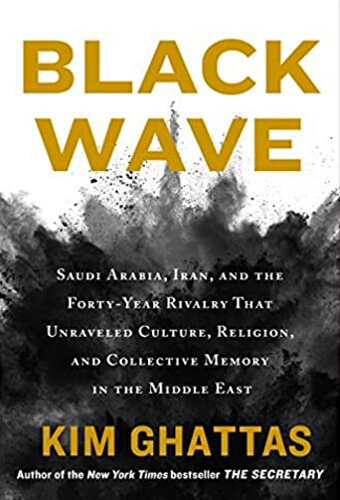
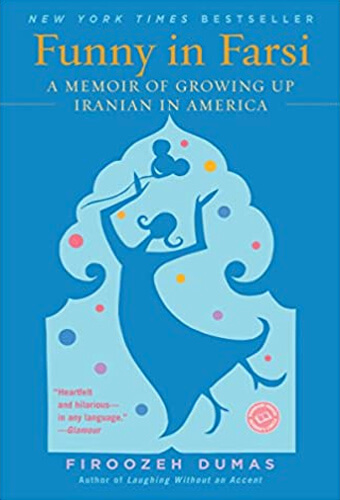
NEW YORK TIMES BESTSELLER • Finalist for the PEN/USA Award in Creative Nonfiction, the Thurber Prize for American Humor, and the Audie Award in Biography/Memoir
This Random House Reader’s Circle edition includes a reading group guide and a conversation between Firoozeh Dumas and Khaled Hosseini, author of The Kite Runner!
“Remarkable . . . told with wry humor shorn of sentimentality . . . In the end, what sticks with the reader is an exuberant immigrant embrace of America.”—San Francisco Chronicle
In 1972, when she was seven, Firoozeh Dumas and her family moved from Iran to Southern California, arriving with no firsthand knowledge of this country beyond her father’s glowing memories of his graduate school years here. More family soon followed, and the clan has been here ever since.
Funny in Farsi chronicles the American journey of Dumas’s wonderfully engaging family: her engineer father, a sweetly quixotic dreamer who first sought riches on Bowling for Dollars and in Las Vegas, and later lost his job during the Iranian revolution; her elegant mother, who never fully mastered English (nor cared to); her uncle, who combated the effects of American fast food with an army of miraculous American weight-loss gadgets; and Firoozeh herself, who as a girl changed her name to Julie, and who encountered a second wave of culture shock when she met and married a Frenchman, becoming part of a one-couple melting pot.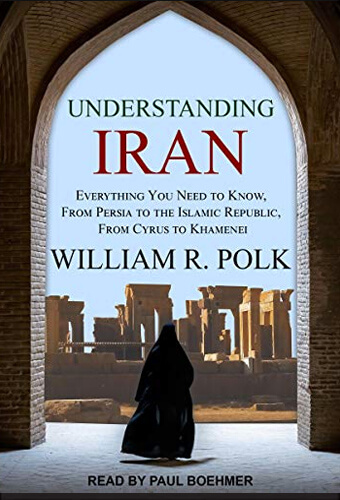
William R. Polk provides an informative, history of a country which is moving quickly toward becoming the dominant power and culture of the Middle East.
A former member of the State Department's Policy Planning Council, Polk describes a country and a history misunderstood by many in the West. While Iranians chafe under the yolk of their current leaders, they also have bitter memories of generations of British, Russian, and American espionage, invasion, and dominance. There are important lessons to be learned from the past, and Polk teases them out of a long and rich history and shows that it is not just now, but for decades to come that an understanding of Iran will be essential to American safety and well-being.
With a thrilling narrative that sheds much light on recent events, this national bestseller brings to life the 1953 CIA coup in Iran that ousted the country’s elected prime minister, ushered in a quarter-century of brutal rule under the Shah, and stimulated the rise of Islamic fundamentalism and anti-Americanism in the Middle East. Selected as one of the best books of the year by the Washington Post and The Economist, it now features a new preface by the author on the folly of attacking Iran.
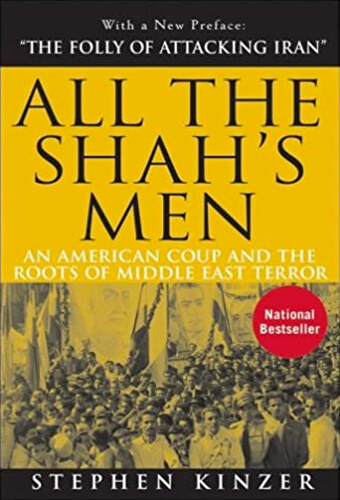

Iran's Revolutionary Guards are one of the most important forces in the Middle East today. As the appointed defender of Iran's revolution, the Guards have evolved into a pillar of the Islamic Republic and the spearhead of its influence. Their sway has spread across the Middle East, where the Guards have overseen loyalist support to Bashar al-Assad in Syria and been a staunch backer in Iraq's war against ISIS. In spite of their prominence, the Guards remain poorly understood to outside observers. In Vanguard of the Imam, Afshon Ostovar has written the first comprehensive history of the organization
Every Thursday morning for two years in the Islamic Republic of Iran, Azar Nafisi, a bold and inspired teacher, secretly gathered seven of her most committed female students to read forbidden Western classics. Some came from conservative and religious families, others were progressive and secular; some had spent time in jail. They were shy and uncomfortable at first, unaccustomed to being asked to speak their minds, but soon they removed their veils and began to speak more freely–their stories intertwining with the novels they were reading by Jane Austen, F. Scott Fitzgerald, Henry James, and Vladimir Nabokov. As Islamic morality squads staged arbitrary raids in Tehran, as fundamentalists seized hold of the universities and a blind censor stifled artistic expression, the women in Nafisi’s living room spoke not only of the books they were reading but also about themselves, their dreams and disappointments.
Azar Nafisi’s luminous masterwork gives us a rare glimpse, from the inside, of women’s lives in revolutionary Iran. Reading Lolita in Tehran is a work of great passion and poetic beauty, a remarkable exploration of resilience in the face of tyranny, and a celebration of the liberating power of literature.
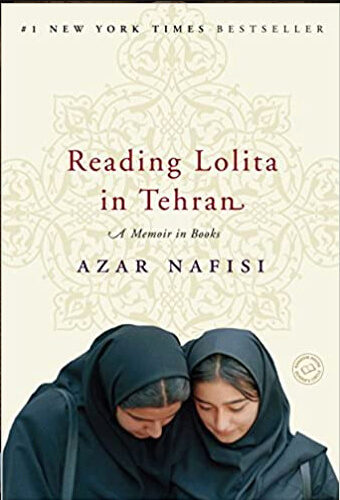
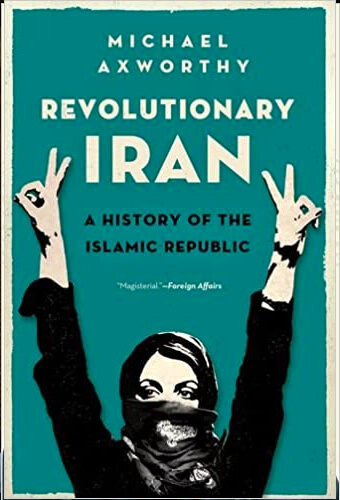
In Revolutionary Iran, Michael Axworthy guides us through recent Iranian history from shortly before the 1979 Islamic revolution through the summer of 2009, when Iranians poured into the streets of Tehran by the hundreds of thousands, demanding free, democratic government. Axworthy explains how that outpouring of support for an end to tyranny in Iran paused and then moved on to other areas in the region like Egypt and Libya, leaving Iran's leadership unchanged.
The Iranian Revolution of 1979 was a defining moment of the modern era. Its success unleashed a wave of Islamist fervor across the Middle East and signaled a sharp decline in the appeal of Western ideologies in the Islamic world. Axworthy takes readers through the major periods in Iranian history over the last thirty years: the overthrow of the old regime and the creation of the new one; the Iran-Iraq war; the reconstruction era following the war; the reformist wave led by Mohammed Khatami; and the present day, in which reactionaries have re-established control. Throughout, he emphasizes that the Iranian revolution was centrally important in modern history because it provided the world with a clear model of development that was not rooted in Western ideologies. Whereas the world's major revolutions of the previous two centuries had been fuelled by Western, secular ideologies, the Iranian Revolution drew its inspiration from Islam.
Revolutionary Iran is both richly textured and from one of the leading authorities on the region; combining an expansive scope with the most accessible and definitive account of this epoch in all its humanity.
An immersive, gripping account of the rise and fall of Iran's glamorous Pahlavi dynasty, written with the cooperation of the late Shah's widow, Empress Farah, Iranian revolutionaries and US officials from the Carter administration.
In this remarkably human portrait of one of the twentieth century's most complicated personalities, Mohammad Reza Pahlavi, Andrew Scott Cooper traces the Shah's life from childhood through his ascension to the throne in 1941. He draws the turbulence of the post-war era during which the Shah survived assassination attempts and coup plots to build a modern, pro-Western state and launch Iran onto the world stage as one of the world's top five powers.
Readers get the story of the Shah's political career alongside the story of his courtship and marriage to Farah Diba, who became a power in her own right, the beloved family they created, and an exclusive look at life inside the palace during the Iranian Revolution. Cooper's investigative account ultimately delivers the fall of the Pahlavi dynasty through the eyes of those who were there: leading Iranian revolutionaries; President Jimmy Carter and White House officials; US Ambassador William Sullivan and his staff in the American embassy in Tehran; American families caught up in the drama; even Empress Farah herself, and the rest of the Iranian Imperial family.
Intimate and sweeping at once, The Fall of Heaven recreates in stunning detail the dramatic and final days of one of the world's most legendary ruling families, the unseating of which helped set the stage for the current state of the Middle East.
